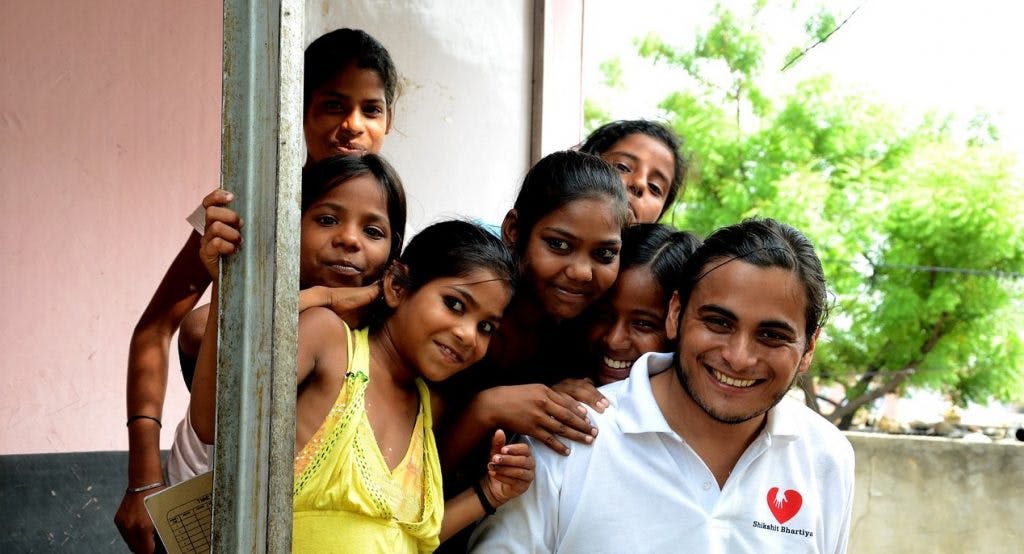With the advent of globalization and technology, the act on international volunteering has flourished. It has become more accessible, affordable and unique.
Activities are bespoke of the heritage and culture of the community. People from different walks of life participate, hence, it is necessary to know how to interact with others in the volunteer programs.
A volunteer’s interests, strengths, and skills are factored in. Commitment, communication and enthusiasm play an important role. If you are of the many individuals who plan to volunteer abroad, here are some tips on how to immerse yourself in your chosen locale and commune with them.
Be proactive
International volunteering serves as a vehicle to get to know the world in a realistic setting. Learn to ask questions when you are curious about something or clarify information when in doubt. Take down notes for future reference.
As a volunteer, your primary goal is to bring positive change to the community you have decided to help. You may not be able to immediately provide solutions or even give suggestions. Observe their surroundings first. Figure out how they think and do things. Notice their reactions and comments.
Take the initiative to absorb relevant information as this will help you interact with them during your stay. Know your responsibilities as well as the expectations of the volunteer organization.
Be ready with relevant phrases in the English language
Take time to know the common questions you can use when interacting with foreigners who you might be working with in the project. Be more interested to get to know others in the same project. Be ready with questions such as these:
“What’s a popular food in your country?”
“Can you tell me about a special tourist spot in your country?”
“What do you love about your culture?”
“What’s a typical day like in your city?”
“What’s your national costume like?”
“Can you tell me one important person in your history?”
“What are the common jobs?”
“How are the youth in the society?”
This is a way of building connection and collaboration. It’s pleasant to know them not just as volunteers, but also who they are as an individual.
Learn important phrases in the local language
You are not only dealing with other volunteers. You are also interacting with the local community. Be familiar with words and phrases in their native tongue. The community will feel that you are sincerely making an effort to help them. Because of this display of genuineness, you can get the locals to open up with you and share their ideas. You will easily get their trust and friendship.
Remember that language is a major part of culture. Ask them some words of wisdom and popular expressions in their language.
Determine how you can give back to the community
Helping others does not always equate to providing monetary help alone. Ask what resources they need. Find out their ways of coping with difficult situations. Are there other ways of doing a certain task in a more efficient manner?
Look out for ways you best serve, for example, the host family you are living with. Are you experienced in photography? Perhaps, you can conduct a basic workshop on the principle of taking photos. Are your culinary skills the best? Perhaps, you can teach a recipe or two to mothers or wives in the community.
It may not be a good idea to assume that your suggestion may be the best solution. Don’t be afraid to ask what really is important to them. There are many alternatives in giving back to the community. A fulfilling one is when you’re able to give part of yourself to them.
Make friends with others
Remember that you are in a community and it would be delightful to extend your relationship with other volunteers. You’re stronger when you work with others. No one person can bring changes to a community, but a group of people who have a shared vision can.
Be a team player. Stay friendly. Listen to what others have to suggest. Have a conversation with them and find out their stories. You will be able to widen your horizon and look at life in a different perspective when you commune with others.
Create and cultivate relationships beyond the project so that, in future, you can invite others to join you in the same cause you are advocating.
Display enthusiasm
Your positive energy and commitment will radiate from your smiles, behaviors, words, and interactions. When people around you feel your enthusiasm, they would be more inspired to achieve what needs to be done. The local community you are helping out would be more self-reliant and confident.
Be on time for the activities and show you’re excited to do them. Deliver what you said you will commit to do. The people around you would find it a pleasure to work more with you if you display eagerness.
Have an open mind
There may be instances when you might feel overwhelmed by the volunteer project you are doing. Always go back to your ‘why’ of taking this task.
If processes seem to be slow for you, practice patience. Not all organizations work the same way compared to the ones in your country or district.
You might be placed in a group composed of diverse personalities. Learn to adjust to the work styles and communication ways of others.
Keep an open mind as everything is a learning experience.
Conclusion
International volunteering definitely contributes to your personal growth. Not only do you get the opportunity to enhance your language and communication skills, you will get to think more sensibly and act more sensitively towards other people.
You will have the chance to see the world and how things operate in a different situation. This will add to your confidence to talk about your life, perspectives, and experiences.

